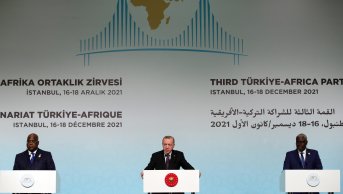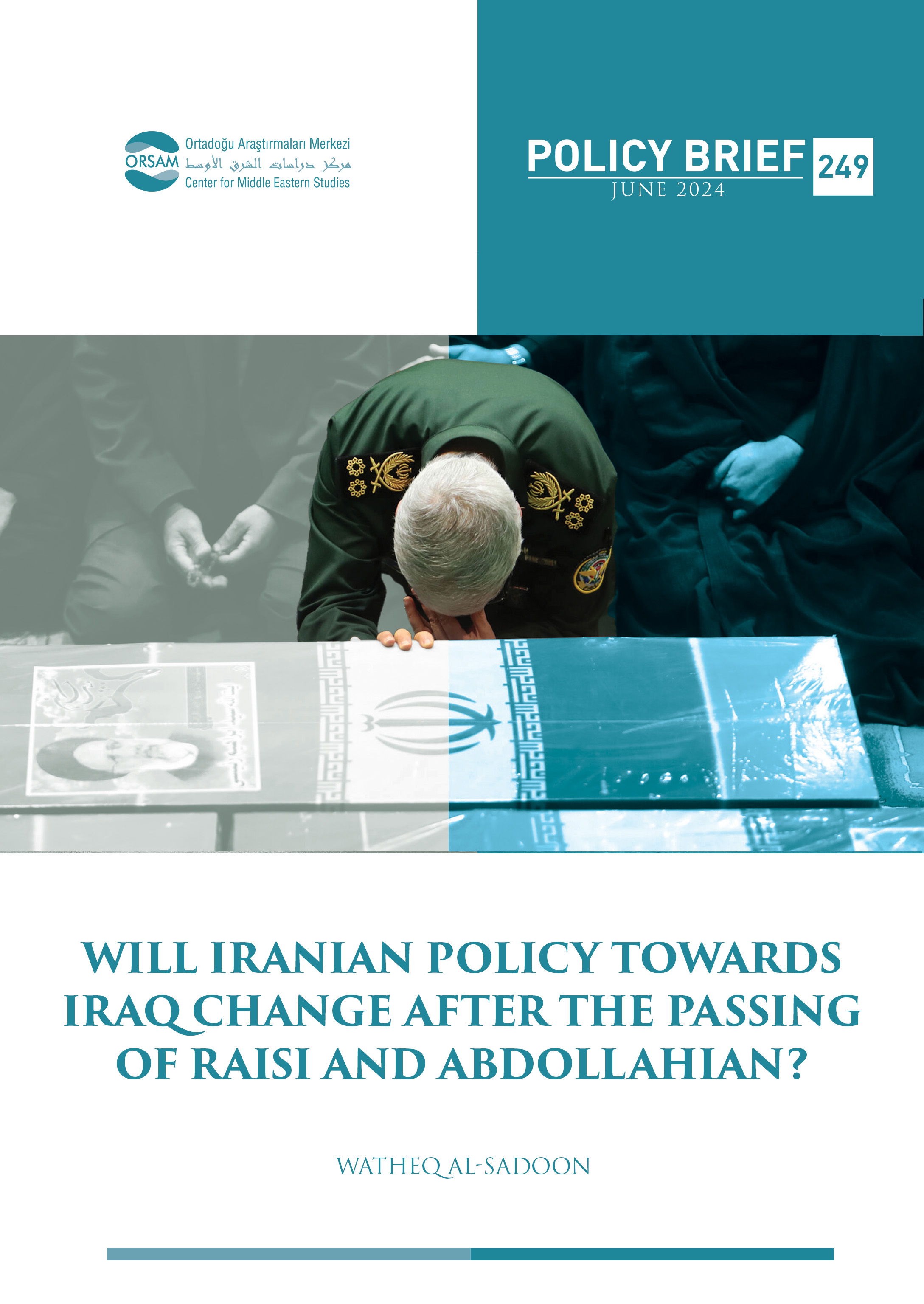Human Rights Violations in Egypt and Future of al-Sisi Regime

Since the military coup in Egypt in 2013, the al-Sisi regime is the main cause for instability in the country. The regime was not able to prevent economic breakdown and could not ensure political stabilization and domestic security. It is a political structure that received criticism from all strata of the society due to its oppressive attitudes. This situation caused an anarchic environment where opponents of regime continue their protests and terror organizationsattack military and civilian targets on a daily basis. As a result of such environment, nowadays, it is frequently discussed how long such a regime will survive despite the enormous international support in political and economic fields.
Indeed, the developments witnessed in Egypt in the last several months cause more questions about the future of Abdel Fattah al-Sisi government. Especially some Western capitals which have supported al-Sisi since the coup have begun to feel increasingly more disturbed. After terror organization ISIS downed a Russian warcraft in Sharm el-Sheikh in October, Russia completely suspended its tourists’ flow and banned the flights to this region.United Kingdom and some other countries evacuated their tourists from the Red Sea region and cancelled all operations to this region. One of the biggest tour operators in the United Kingdom, Thomas Cook announced on 8 March that all flights to and reservations for the Red Sea region were cancelled,proving the severity of concerns caused by terrorism in the region. Mostly because of these recent events, the number of tourists in Egypt decreased by 50% in January and February 2016. As the lifeblood of the national economy, tourism sector entered into a process of serious recession causing even more problems for the al-Sisi regime.
In addition to these domestic problems, the issue of GiulioRegenicaused a new crisis between the two countries. The crisis between Italy and Egypt has also acquired international dimensions in the recent days, which has also increased the criticism against Cairo and led human rights activists to show more interest in the violations in Egypt. After an Italian doctoral student Giulio Regeni was abducted and tortured to death by the security units in Cairo, al-Sisi government received a storm of reactions from several countries, notably Italy. Especially received from the academic circles and prominent media organs, these messages underlined that there was no security of life but a state of chaos in Egypt. Considering that Italy supported al-Sisi government both with economic agreements and political initiatives in the post-coup period, it can be argued that Cairo has lost one of the most important Western supporters as a result of these recent events.
Because of the deteriorating political environment al-Sisi regime is now shaking. In the past few days, the cabinet reshuffle in Egypt has been considered as a way out of political impasses that the regime has encountered. On the other hand, they have shown the public that they make so-called efforts in this sense. Human rights violations continue as well as aggravated economic conditions, there is no progress in ensuring social justice and peace, social problems are even worse than the term of Mobarak. All these can be said to have caused Egyptian people to completely give up hope of al-Sisi government.
Will the West Continue to Support to al-Sisi Regime?
Under such conditions, especially some prominent Western media organs heavily criticize al-Sisi government. These circles may be interpreted to accept that Egypt is now at a loose end.New York Times, one of the leading media organs in the USA, indicated in an editorial article that Washington should think twice to support al-Sisi government which continues to violate human rights and plays a role in the instability of the country. While criticizing the Egyptian regime, the newspaper also sent a warning message to Obama. In the last part of the article, New York Times editors emphasized that the future of al-Sisi is unknown in Egyptian politics andObamaadministration should revise the future of the relations with the current regime in Cairo.
Another prominent international news agency, Reuters also published number of articles criticizing Sisi regime. These analyses warned that al-Sisi government would not have a long term in Egypt. In an analysis published on 12 February, it was indicatedthat different groups in the country started to have anti-Sisi positions and this was even seen the media which hasextensively supported al-Sisi during the coup. Furthermore, it was also underlined that there might be unexpected alliances between the opposition groups in the country if al-Sisi continues to follow oppressive policies. This may lead to the overthrow of al-Sisi government in a democratic way or alternatively, with another revolution.
In addition to these critics, especially some politicians and organizations in Western countries have also criticized al-Sisi government in the past few weeks. European Parliament harshly condemned human rights violations in Egypt in a notice published on 8 March. It also invited al-Sisi government to stop violations thatparticularly affect civil opposition. European Parliament criticized such practices as false imprisonments, long judgement process, ban on leaving the country and demanded all European countries to stop selling arms to Egypt and to terminate their security cooperation with the country.
On March 24, the European Union seriously criticized Egypt for its oppressive policies especially towards nongovernmental organizations in the country. The EU representation office in Egypt stated that “Recent practices like ban on leaving the country, asset freeze and interrogation of human rights activists do not comply with fundamental human rights and freedoms protected by the Constitution of the country and with the agreement between Egypt and the EU” and harshly criticized al-Sisi government.
Having supported Egypt since the military coup, the USA and the UK have recently criticized al-Sisi government for its human rights violations. These criticisms show that Washington and London are increasingly displeased with the political situation in Egypt. In addition to this, several global and regional organizations defending human rights, especially Human Rights Watch and Amnesty International draw attention to increasing number of human rights violations in Egypt. These critics show that there will be a harsher attitude towards al-Sisi government in the months to come.
Where is al-Sisi Regime Heading for?
Lack of security is at its highest level in Egypt and there are terror attacks targeting security forces almost every day. The government searches for a way out of this state of crisis. Within this framework, al-Sisi government even negotiates with Hamas which was recently tried in court for being a ‘terror organization’ in the country and hopes to end the acts of violence in Sinai. On the other hand, Cairo tries to cooperate with Israel and Russia, the least “popular” states in the region. Finally, in the past few weeks, the messages have been clearly given for normalization of the relations with Turkey. This reveals that Egypt even considers Ankara as a way out of the crisis due to its strategic position in regional politics.
All these developments and al-Sisi’s search for alternatives in foreign policy show that international support to Cairo is now under question. Therefore,international actors and regional countries that support al-Sisi regime should revise their policies. The ultimate goal of the revolution process which started on 25 January 2011 in Egypt was to build a democratic state. Number of political groups in the country still demand this and planfor another revolutionary attempt. Regional and global actors must rather support Egyptian people that lived under oppression for long years so that they can reach this goal.










